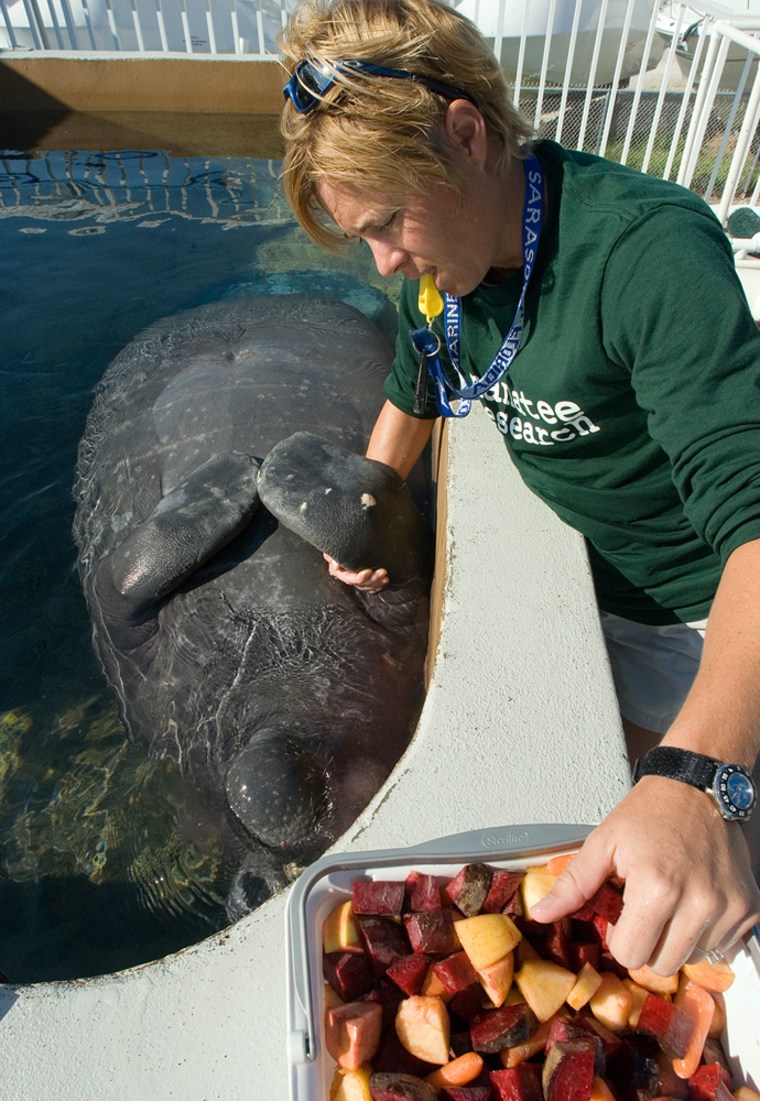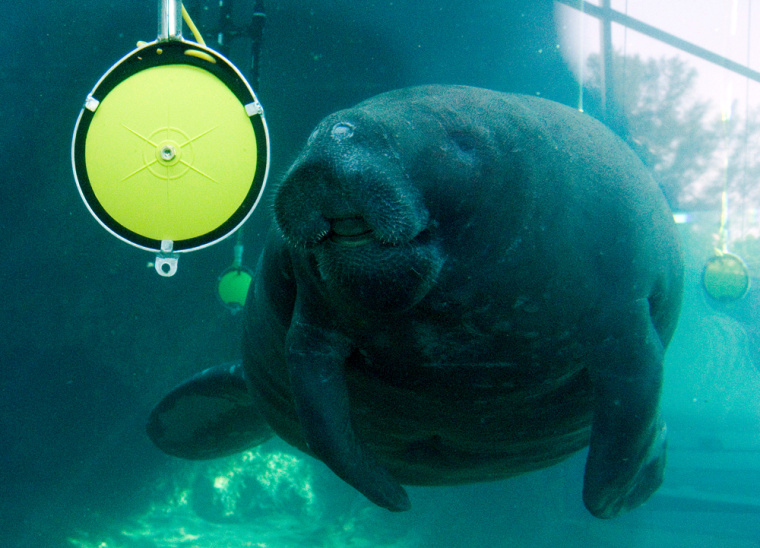Back in 1902, a scientist examining the smooth, grapefruit-size brain of a manatee remarked that the organ's unwrinkled surface resembled that of the brain of an idiot. Ever since then, manatees have generally been considered incapable of doing anything more complicated than chewing sea grass.
But Hugh, a manatee in a tank at a Florida marine laboratory, doesn't seem like a dimwit. When a buzzer sounds, the speed bump-shaped mammal slowly flips his 1,300 pounds (590 kilograms) and aims a whiskered snout toward one of eight loudspeakers lowered into the water. Nosing the correct speaker earns him treats.
Hugh is no manatee prodigy. Such sensory experiments, along with other recent studies, are revealing that sea cows aren't so stupid after all.
Researchers contend that if the plant-eating beasts seem slow-witted, it is because they faced no threats to their survival before the advent of boat propellers.
"They're not under any selection pressure to evolve the rapid-type behavior we've associated with hawks, a predator, or antelopes, a prey. They look like very contented animals that don't have very much to do all day," said Roger Reep, a neuroscientist at the University of Florida's College of Veterinary Medicine.
Protecting the manatees
The experiments under way at the independent Mote Marine Laboratory, could help scientists protect Florida's manatees, an endangered species, from propellers and other dangers.
At least 75 manatees have been killed this year in collisions with watercraft, according to the Florida Fish and Wildlife Conservation Commission.
Despite recent findings that suggest the animals hear well enough to avoid boats, researchers are not sure why manatees keep getting hit. They could be surfacing to breathe while sleeping, or they may have grown too accustomed to the sound of boats.
At the Mote laboratory, the buzzer experiments are hearing tests in which the tones gradually grow shorter and softer. The researchers want to know: At what distance could Hugh hear a boat's propeller churning in the water? Could Hugh determine where the sound is coming from?
Brain folds don’t tell the whole story
Scientists have long assumed brains with many folds — such as those belonging to dolphins and humans — are a sign of intelligence. But Reep argues the cause behind those brain folds is unknown, and smooth-brained manatees don't seem to be missing anything important.

"The brain looks just as complex internally as any other mammalian brain," said Reep, co-author with Bob Bonde, a Florida biologist with the U.S. Geological Survey, of a book on manatee physiology.
Hugh and his half-brother Buffett, both born in captivity, have spent many days since 1998 showing researchers what they can learn. The manatees have been trained to respond to whistles and stop at underwater targets.
Scientists want to determine how well manatees distinguish colors and objects, and how sensitive their hearing and sense of touch are.
Testing touch and sight
Hugh and Buffett are rewarded with handfuls of sliced apples, carrots and beets for correct test responses. The manatees pull the food into their mouths with lips dexterous enough to untie knots.
In the vision tests, Buffett and Hugh do not see particularly well out of their tiny eyes, though it appears they do see color, an unusual trait for marine mammals. But even by manatee standards, Hugh seems to be visually impaired.
In manatee brains, the regions that process sight are quite small compared to auditory and tactile regions, according to Reep and Bonde.
Researchers have discovered that manatee muzzles and bodies are covered with sensitive hairs that may help them detect underwater objects and current changes.
